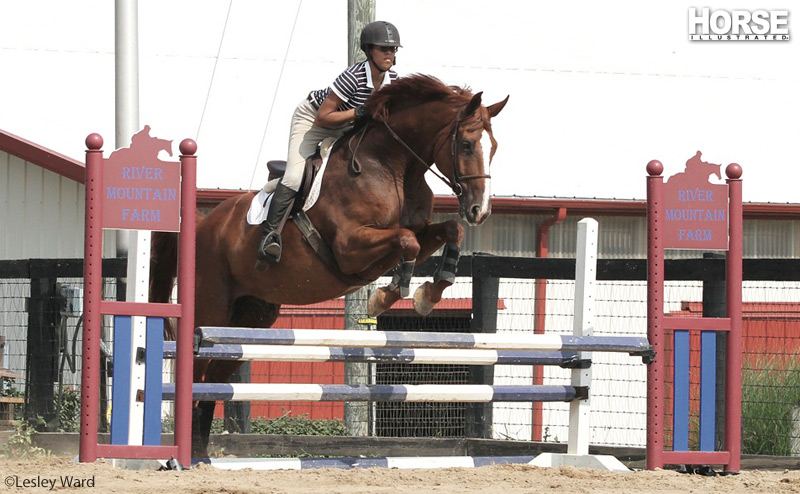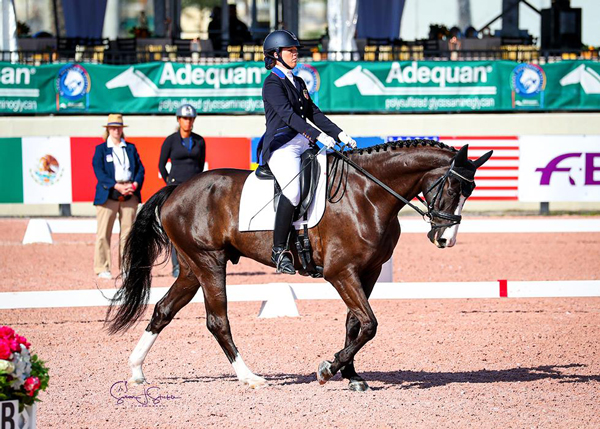State officials have imposed a quarantine at the Virginia Tech Marion duPont Scott Equine Medical Center’s facilities effective immediately due to the suspected infection of the neurologic form of equine herpes virus (EHV-1) in three hospitalized horses.
No additional patients will be admitted to the hospital until further notice. Clients who may have questions or concerns regarding their horses should call the hospital’s main telephone line at (703) 771-6800. Hospital officials expect the quarantine to last anywhere from 14 to 28 days.
EHV-1, one of several strains of the equine herpes virus, is a highly contagious disease that, although not transmissible to humans, can cause respiratory signs, abortion, peri-natal infection, encephalitis, and other complications in horses. It is spread from infected horses, which shed the virus through nasal fluids and bodily secretions, by both aerosol transmission and by direct contact with horses affected with the virus. Symptoms include fever, coughing, nasal discharge, loss of balance, urinary retention and recumbency.
“Based on the clinical signs and one positive test from the first horse with neurologic signs, we are treating this as an infection with EHV-1. We are taking extraordinary precautions and following the most stringent procedures possible in order to protect the horses in our care as well as the general equine population,” says Dr. Nat White, who is the Jean Ellen Shehan professor and director of the Marion duPont Scott Equine Medical Center. “The health and safety of our patients is our first priority.”
According to White, a horse that was brought to the hospital on Feb. 7 to be treated for an unrelated emergency subsequently developed a fever and signs of nervous disease. The horse was immediately sequestered in the hospital’s isolation unit. Initial testing revealed that the horse was positive for the EHV-1 virus. “Though this test can have false positive results, we are treating this as a true infection,” White says.
In addition, hospital officials elected to impose a voluntary quarantine of patients in the area of the hospital where a risk of exposure was possible. These horses were promptly separated from the rest of the hospital’s equine population in designated isolation barns.
As of early Feb. 20, two additional horses being treated at the center for unrelated problems developed fever and neurological symptoms leading state officials to deem necessary an immediate quarantine of all hospital facilities.
“The center has always followed strict biosafety procedures governing patient care, movement in and out of the isolation unit and cleaning of stalls between each horse occupancy, in order to prevent the spread of infectious diseases,” says Dr. Martin Furr, who is the Adelaide C. Riggs chair in equine medicine at the Marion duPont Scott Equine Medical Center. “However, this quarantine, which is the first that we’ve had since the center was opened in 1984, has been implemented to ensure that there is no chance of spreading the virus.”
The mandate to quarantine the facilities was issued by the Virginia State Veterinarian’s Office on the afternoon of Feb. 20. State veterinarians of Virgina and Maryland, as well as referring veterinarians and owners of all horses that may have been exposed to the disease, have been informed.
“I would like to emphasize that though these are not confirmed cases of EHV-1 by virus isolation or serology, we are implementing appropriate measures to prevent the spread of any contagions,” White says. “We are taking this situation very seriously and will do whatever is necessary to safeguard the well-being of our patients.”
Virginia Tech’s Marion duPont Scott Equine Medical Center is a Leesburg-based full-service equine hospital that is owned by Virginia Tech and operated as one of three campuses that comprise the Virginia-Maryland Regional College of Veterinary Medicine.





This “news” is 7 months old.